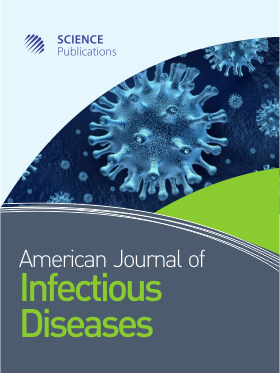Coronary Heart Disease (CHD) Risk Factors and Metabolic Syndrome in HIV-Positive Drug Users in Miami
- 1 Florida International University, United States
- 2 Johns Hopkins University, United States
- 3 University of Miami School of Medicine, United States
Abstract
The frequency of coronary heart disease (CHD) is increasing among HIV seropositive persons. This phenomenon may be related to HIV disease itself, the use of antiretroviral medications and increased length of survival, or the synergism of these factors. In this study we have calculated the 10-year CHD risk estimate and the prevalence of metabolic syndrome in a cohort of 118 HIV seropositive chronic drug users, including those who are on HAART with or without protease inhibitors (PI). The results showed that the 10-year coronary heart disease risk among the HIV seropositive drug users was 4.8 ± 5.7, which is within the range of results published for other HIV infected cohorts. The 10-year CHD risk was significantly higher in men (5.9±6.1, p<0.001) than in women (1.7±2.4), due to their gender and the pre-menopausal mean age of the women (39.4±7.3 years of age), despite a significantly higher rate of abdominal obesity (54.8% in women vs. 8.1% in men, p<0.001) and lower HDL (61.3% in women vs. 40% in men, p=0.042). The rate of metabolic syndrome among our female HIV seropositive drug users was significantly higher (29% vs 10.3%, p=0.013) compared to men (10.3%). Participants with metabolic syndrome had a significantly higher 10-year CHD risk (27.8% vs. 10.2%, p=0.041) and higher mean BMI (28.6 ± 4.1 vs. 24.2±4, p<0.001) than those without the syndrome. The predominant proportion of the cohort had a high viral load, suggesting that their use of illicit drugs has an influence on either adherence or effectiveness of antiretroviral medication. Increased viral load was significantly associated with metabolic syndrome (OR=2.23, 95% CI:1.12, 4.47; p=0.023), high fasting glucose (OR=1.61, 95% CI: 1.02, 2.55; p=0.042) and low HDL levels (OR=1.41, 95%CI: 1.01, 1.98; p=0.046), after controlling for age gender, smoking, PI exposure, BMI and CD4. HAART with or without PI did not significantly impact the 10-year CHD risk estimate or metabolic syndrome in this cohort. The estimated effect of PI, however, was positively and significantly related to triglyceride levels (effect estimate=95.81; 95% CI:39.40, 152.21; p<0.01) after controlling for age, gender, smoking, viral load, CD4 cell count and BMI. Heavy use of cigarettes and crack/cocaine was inversely associated with obesity (OR=0.84, 95% CI:0.67, 0.99; p=0.049; OR=0.43, 95% CI:0.19, 0.98; p=0.044, respectively), while use of marijuana tended to be associated with increased central obesity (p=0.08). Heavy cigarette smoking was significantly associated with low HDL (OR=3.06, 95% CI:1.18; 7.95, p=0.02). The significant association of higher viral load with CHD risk indicates that controlling viral load may be important in reducing CHD risk in HIV infected drug users.
DOI: https://doi.org/10.3844/ajidsp.2006.173.179

- 2,976 Views
- 2,383 Downloads
- 19 Citations
Download
Keywords
- Coronary heart disease risk
- HIV
- metabolic syndrome
